by Max Thorn, Substitute Instruction Librarian
The QC Library celebrates National Disability Employment Awareness Month! Led by the United States Department of Labor’s Office of Disability Employment Policy, this annual initiative, celebrated in October since 1945, recognizes people with disabilities as part of an inclusive workforce. The 2022 theme is “Disability: Part of the Equity Equation.”
Persons of working age with a disability are unemployed at a much higher rate than persons without a disability, according to the Bureau of Labor Statistics. They are also more likely to be employed part-time, in the service industry, or self-employed. What do scholars make of these phenomena? What do the experiences of people with disabilities say about equity (or the lack thereof) in workplaces? Or about the very ideas of productivity and work? To find out, dive into the National Disability Employment Awareness Month page in our new Disability Studies research guide.
But work is only one small part of the picture. This month also marks the publication of our research guide for Disability Studies generally. As an interdisciplinary field emerging in the late 20th-century along the lines of Gender Studies or Latino Studies, Disability Studies uses a variety of methodologies to analyze the meanings attributed to human differences, whether bodily or mental. People with disabilities have been at the forefront of both activism and scholarship that challenge the idea of what’s “normal,” and the attendant social exclusions that hide behind that idea. Especially significant have been disabled persons’ activism and theorizing around the disconnect between human beings and the built environment (think of curb cuts, ramps, elevators) in pursuit of equity for everyone. Radical scholars in disability studies have long positioned their research in the wider context of human liberation from all forms of oppression.
Here are some highlights from the Disability Studies research guide:

No Right to Be Idle: the Invention of Disability, 1840s-1930s by Sarah F. Rose
ISBN: 9781469630083
Publication Date: 2017-04-03
“During the late nineteenth and early twentieth centuries, Americans with all sorts of disabilities came to be labeled as ‘unproductive citizens.’ […] By tracing the experiences of policymakers, employers, reformers, and disabled people caught up in this epochal transition, Rose masterfully integrates disability history and labor history. She shows how people with disabilities lost access to paid work and the status of ‘worker’–a shift that relegated them and their families to poverty and second-class economic and social citizenship. This has vast consequences for debates about disability, work, poverty, and welfare in the century to come.”

Disabled People, Work and Welfare: Is Employment Really the Answer? by Chris Grover (Editor); Linda Piggott (Editor)
ISBN: 9781447318361
Publication Date: 2015-07-01
“This is the first book to challenge the concept of paid work for disabled people as a means to ‘independence’ and ‘self determination’. Recent attempts in many countries to increase the employment rates of disabled people have actually led to an erosion of financial support for many workless disabled people and their increasing stigmatisation as ‘scroungers’. Led by the disability movement’s concern with the employment choices faced by disabled people, this controversial book uses sociological and philosophical approaches, as well as international examples, to critically engage with possible alternatives to paid work.”

Crip Times: Disability, Globalization, and Resistance by Robert McRuer
ISBN: 9781479874156
Publication Date: 2018-01-16
“Contends that disability is a central but misunderstood element of global austerity politics. Broadly attentive to the political and economic shifts of the last several decades, Robert McRuer asks how disability activists, artists and social movements generate change and resist the dominant forms of globalization in an age of austerity, or ‘crip times.'”

Sex, Identity, Aesthetics by Jina B. Kim (Editor); Joshua Kupetz (Editor); Crystal Yin Lie (Editor); Cynthia Wu (Editor)
ISBN: 9780472902477
Publication Date: 2021-10-12
“‘Sex, Identity, Aesthetics: The Work of Tobin Siebers and Disability Studies’ uses Siebers’ work as a launchpad for thinking about contemporary disability studies. The editors provide an overview of Siebers’ research to show how it has contributed to humanistic understandings of ability and disability along three key axes: sex, identity, and aesthetics.”

The Disability Rights Movement by Doris Fleischer; Frieda Zames
ISBN: 9781439907443
Publication Date: 2011-06-03
“The authors provide a probing analysis of such topics as deinstitutionalization, housing, health care, assisted suicide, employment, education, new technologies, disabled veterans, and disability culture. Based on interviews with over one hundred activists, The Disability Rights Movement is a complex and compelling story of an ongoing movement that seeks to create an equitable and diverse society, inclusive of people with disabilities.”

Academic Ableism by Jay T. Dolmage
ISBN: 9780472900725
Publication Date: 2017-12-05
“Academic Ableism brings together disability studies and institutional critique to recognize the ways that disability is composed in and by higher education, and rewrites the spaces, times, and economies of disability in higher education to place disability front and center. […] Examining everything from campus accommodation processes, to architecture, to popular films about college life, Dolmage argues that disability is central to higher education, and that building more inclusive schools allows better education for all.”

The Disability Studies Reader by Lennard J. Davis (Editor)
ISBN: 9781138930223
Publication Date: 2016-11-01
“The fifth edition of The Disability Studies Reader addresses the post-identity theoretical landscape by emphasizing questions of interdependency and independence, the human-animal relationship, and issues around the construction or materiality of gender, the body, and sexuality. […] The collection addresses physical disabilities, but as always investigates issues around pain, mental disability, and invisible disabilities as well.”
